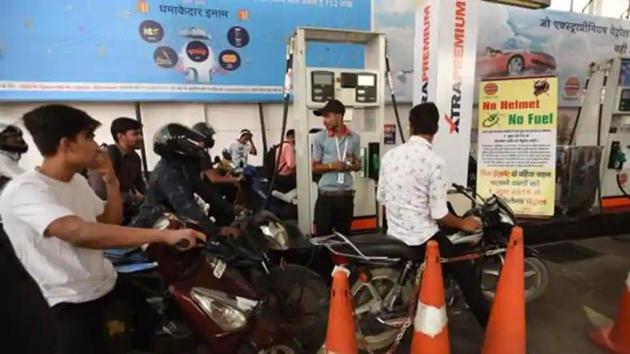Why petrol and diesel prices have not increased since March 16
The government is considering raising excise duty on the two fuels again that would give it some additional revenue crucial for combating disruptions due to coronavirus outbreak.
International oil slumped to a 17-year low as lockdowns implemented to check the spread of coronavirus disease Covid-19 hit major economies, thereby contracting demand. The prices of petrol and diesel in India, however, remain frozen since March 16 despite average crude oil import cost for the country dropping by over 20 per cent.

Benchmark crude oil Brent on Monday dropped as low as 6.62% at $23.28 per barrel, while the West Texas Intermediate (WTI) fell below 5% at around $20 a barrel.
Requesting anonymity, government officials and company executives said that prices of petrol and diesel have frozen to allow petroleum refiners to make up for the losses in their inventory. Even the government is considering raising excise duty on the two fuels again that would give it some additional revenue crucial for combating disruptions due to coronavirus outbreak.
The government had raised excise duty on petrol and diesel by ₹3 a litre on March 14. A Re 1 per litre increase in excise duty means an additional ₹14,500 crore annual revenue for the government.
According to the latest official data, which comes with a lag, India’s average crude oil purchase price (Indian basket) also fell sharply to ₹1,805.22 per barrel on Friday compared to ₹2,272.08 per barrel on March 16, when the companies had last cut prices of petrol and diesel by 16 paise per litre and 15 paise a litre, respectively.
State-run oil marketing companies had last revised pump prices of auto fuels that day by slashing 16 paise per litre on petrol and 15 paise on diesel. In Delhi, petrol is currently being sold at ₹69.59 per litre and diesel at ₹62.29 a litre.
“Excise duty increase on petrol and diesel is imminent and a final view on its quantum will be taken by the finance ministry,” a government official said requesting anonymity. Hindustan Times had reported about it on March 21.
The official quoted above said the proposed excise duty hike will not only provide much needed funds to meet the immediate requirements arising due to the Covid-19 pandemic, but would also act as a cushion against any price surge in the volatile international oil market in future. The government often reduces excise duty on petrol and diesel to protect domestic consumers from any spike in international oil prices. Currently, the central levies on petrol add up to ₹22.98 per litre and on diesel to ₹18.83 per litre.
The finance ministry, the petroleum ministry and state-run oil marketing companies - Indian Oil Corporation (IOC), Bharat Petroleum Corporation Ltd (BPCL) and Hindustan Petroleum Corporation Ltd (HPCL) - did not respond to queries rated to fuel price revision and taxation matters.
A recent research report of State Bank of India (SBI) said the government is expected to further limit fall in retail prices and thereby increase the excise again. “We thus strongly recommend that the increased excise revenue from oil should not be used for bridging the fiscal gap and pleasing the markets; rather sound economics demands it must be used as a fiscal package for income support to the people working in the unorganized sector who are already facing the brunt of loss of jobs,” the report said.






